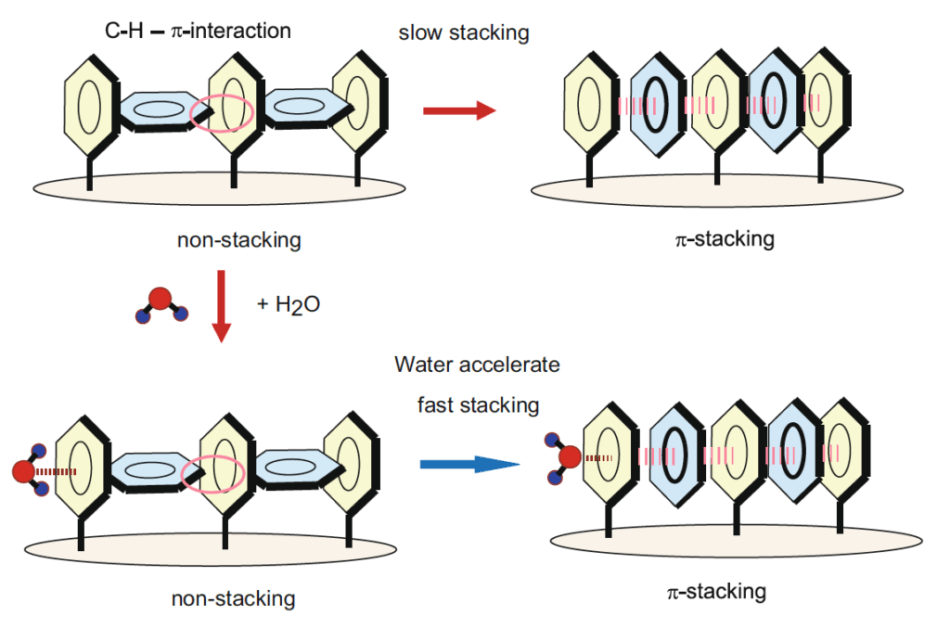Apr 5 2019
Researchers at Hokkaido University have formulated a computational technique that can predict how clusters of molecules act and interact over time, offering crucial insight for future electronics. Their results, reported in the journal Scientific Reports, could pave the way for the creation of a new domain of science referred to as cluster molecular electronics.
 When light is applied to the T-shaped benzene cluster in their computer simulation, they reorganized themselves into a single stack, changing its electrical conductivity. The addition of a molecule of water made the stacking occur significantly faster. (Image credit: Tachikawa H., et al. Scientific Reports, February 20, 2019)
When light is applied to the T-shaped benzene cluster in their computer simulation, they reorganized themselves into a single stack, changing its electrical conductivity. The addition of a molecule of water made the stacking occur significantly faster. (Image credit: Tachikawa H., et al. Scientific Reports, February 20, 2019)
Single molecule electronics is a comparatively new, quickly developing branch of nanotechnology using separate molecules as electronic components in devices. Currently, Hiroto Tachikawa and colleagues at Hokkaido University in Japan have formulated a computational approach that can predict how clusters of molecules act over time, which could help commence a new field of study for cluster molecule electronics. Their method integrates two approaches traditionally used for molecular dynamic and quantum chemical calculations.
They used their technique to predict the variations in a computer-replicated cluster of benzene molecules over time. When light is applied to the T-shaped benzene clusters, they rearrange themselves into one stack; an interaction called pi-stacking. This alteration from one shape to another modifies the cluster’s electrical conductivity, making it behave like an on-off switch. The team then replicated the incorporation of a molecule of water to the cluster and learned that pi-stacking occurred considerably faster. This pi-stacking is also reversible, which would permit switching back and forth between the on and off modes.
In contrast, earlier studies had revealed that the incorporation of a molecule of water to a single molecule electronic device obstructs its performance.
Our findings could usher in a new field of study that investigates the electronic performance of different numbers, types, and combinations of molecular clusters, potentially leading to the development of cluster molecule electronic devices.
Hiroto Tachikawa, Assistant Professor, Graduate School of Engineering, Hokkaido University.